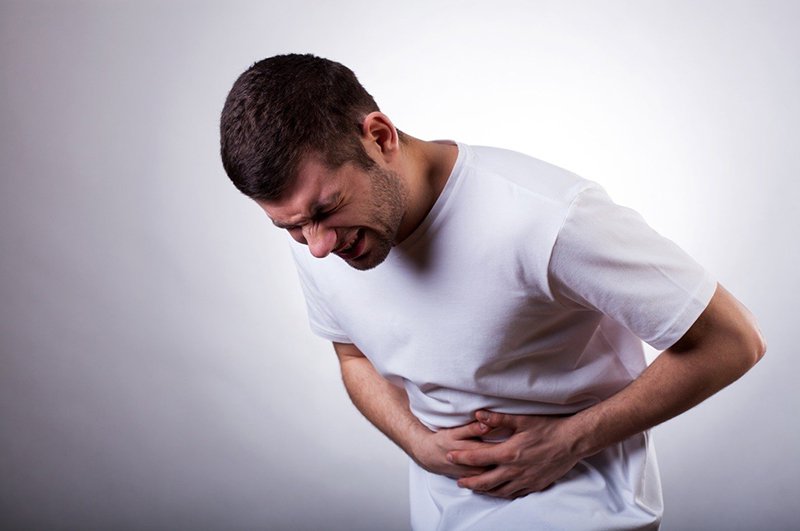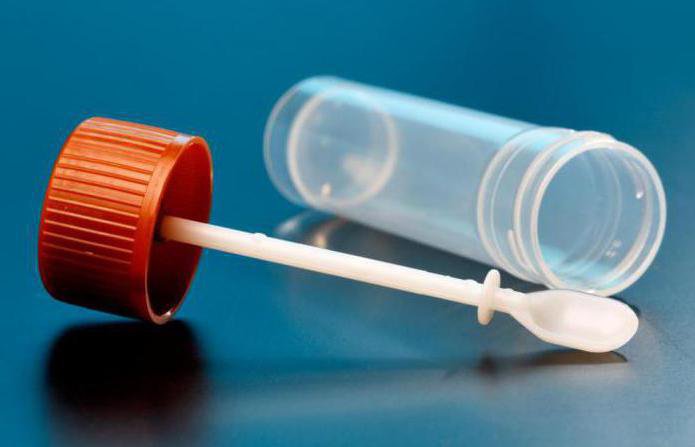How does ulcerative colitis affect your stools?
This is an automatically translated article.
The article is written by Master, Doctor Mai Vien Phuong - Gastroenterologist - Department of Medical Examination & Internal Medicine - Vinmec Central Park International General Hospital.
Ulcerative colitis is a long-lasting inflammatory bowel disease that can affect stool texture, composition, and frequency. In people with ulcerative colitis (UC), the large intestine or colon becomes inflamed and develops small, pus-forming sores. These sores can also develop in the rectum. The type of stool people pass will depend on the site of inflammation and ulceration in the colon.
1. Symptoms of ulcerative colitis
The severity of ulcerative colitis symptoms varies among people with the disease. These symptoms can also change over time.
People diagnosed with ulcerative colitis may experience periods of mild symptoms or no symptoms at all. This is called remission. However, symptoms can return and become more severe. This is called an outbreak.
Common symptoms of ulcerative colitis include: Abdominal pain. Increased abdominal sounds (increased bowel movements). Bloody stools. Diarrhea . Fever. Rectal pain. Weight loss. Malnutrition . Ulcerative colitis can also cause other symptoms, such as: Joint pain. Joint swelling. Nausea and decreased appetite. Skin problems. Mouth Sores. Eye inflammation.
People diagnosed with ulcerative colitis may experience periods of mild symptoms or no symptoms at all. This is called remission. However, symptoms can return and become more severe. This is called an outbreak.
Common symptoms of ulcerative colitis include: Abdominal pain. Increased abdominal sounds (increased bowel movements). Bloody stools. Diarrhea . Fever. Rectal pain. Weight loss. Malnutrition . Ulcerative colitis can also cause other symptoms, such as: Joint pain. Joint swelling. Nausea and decreased appetite. Skin problems. Mouth Sores. Eye inflammation.

Đau bụng là triệu chứng phổ biến của bệnh viêm loét đại tràng
2. Symptoms of stool
Symptoms of ulcerative colitis vary from person to person. But because the disease affects the colon and rectum, bowel problems such as bloody stools or diarrhea are the main symptoms.
The severity of bloody stools or diarrhea depends on the degree of inflammation and ulceration in your colon. Stool-related symptoms of ulcerative colitis include:
Diarrhea. Bloody stools (which can be bright red, pink, or tarry). Urgent defecation. Constipation . Some people have all of the above symptoms. Others may experience only one or two of the symptoms. If you're living with ulcerative colitis, you may have periods of remission that last weeks, months, or years. This is when the symptoms go away.
However, ulcerative colitis is unpredictable. So an outbreak can happen at any time. When a flare occurs, it can cause bowel problems.
The severity of bloody stools or diarrhea depends on the degree of inflammation and ulceration in your colon. Stool-related symptoms of ulcerative colitis include:
Diarrhea. Bloody stools (which can be bright red, pink, or tarry). Urgent defecation. Constipation . Some people have all of the above symptoms. Others may experience only one or two of the symptoms. If you're living with ulcerative colitis, you may have periods of remission that last weeks, months, or years. This is when the symptoms go away.
However, ulcerative colitis is unpredictable. So an outbreak can happen at any time. When a flare occurs, it can cause bowel problems.

Táo bón là một trong những triệu chứng liên quan đến phân của viêm loét đại tràng
3. How does ulcerative colitis affect your stool?
Changes in stool are directly related to how ulcerative colitis affects your colon and rectum. In ulcerative colitis, the immune system attacks healthy cells in the digestive tract. The "attack" increases the white blood cells in your colon and rectum. Such “attacks” are repetitive and lead to chronic inflammation.
Inflammation causes your colon to frequently contract and empty. That's why you may have frequent diarrhea and urgent bowel movements.
When inflammation destroys the cells lining the colon, ulcers can develop. They can bleed and form pus, leading to bloody diarrhea.
Some people with ulcerative colitis also experience constipation, but this is not as common as diarrhea. Constipation usually occurs when the inflammation is limited to the rectum. Other symptoms associated with ulcerative colitis include abdominal pain, painful bowel movements, fatigue, anemia, weight loss, and fever.
Inflammation causes your colon to frequently contract and empty. That's why you may have frequent diarrhea and urgent bowel movements.
When inflammation destroys the cells lining the colon, ulcers can develop. They can bleed and form pus, leading to bloody diarrhea.
Some people with ulcerative colitis also experience constipation, but this is not as common as diarrhea. Constipation usually occurs when the inflammation is limited to the rectum. Other symptoms associated with ulcerative colitis include abdominal pain, painful bowel movements, fatigue, anemia, weight loss, and fever.
4. How to treat fecal-related symptoms
4.1. Drug treatment Stopping inflammation is key to controlling bloody stools and other symptoms associated with ulcerative colitis. No inflammation means no ulceration, and as a result, bleeding stops. To help relieve your symptoms, your doctor may prescribe one or more medications. Includes:
5-aminosalicylic drugs (5-ASA). Immunosuppressive drugs. Antibiotics . Corticosteroid drugs. If your symptoms don't improve with these treatments, you may be given biological therapy, which suppresses part of your immune system.
Your doctor may prescribe short- or long-term medication to help you with maintenance treatment. Talk to your doctor about taking medicine for diarrhea.
5-aminosalicylic drugs (5-ASA). Immunosuppressive drugs. Antibiotics . Corticosteroid drugs. If your symptoms don't improve with these treatments, you may be given biological therapy, which suppresses part of your immune system.
Your doctor may prescribe short- or long-term medication to help you with maintenance treatment. Talk to your doctor about taking medicine for diarrhea.

Bác sĩ có thể kê đơn thuốc ngắn hạn hoặc dài hạn để giúp bạn điều trị duy trì
4.2. Lifestyle changes Some lifestyle changes and home remedies can also help control inflammation and heal your colon.
Diet: There is no specific diet for ulcerative colitis but certain foods can irritate your colon and cause bloody diarrhea. You should keep a food diary and record your meals. This can help you identify foods to avoid, such as some high-fiber foods and dairy.
Reduce stress: Reducing your stress levels can also help improve symptoms. Stress does not cause ulcerative colitis. But chronic stress can boost your immune system into overdrive, causing chronic inflammation, increasing sores, and causing bleeding.
You can't eliminate all stress, but you can learn to manage them as well as your emotions. You should avoid caffeine and alcohol, which can stimulate bowel contractions and worsen diarrhea. Caffeine and alcohol can also worsen anxiety and stress.
Exercise can also help you relax and maintain emotional balance. The goal of physical activity is at least 150 minutes per week (just over 20 minutes per day). You can also practice relaxation techniques like meditation, deep breathing, and yoga to reduce your stress levels.
Diet: There is no specific diet for ulcerative colitis but certain foods can irritate your colon and cause bloody diarrhea. You should keep a food diary and record your meals. This can help you identify foods to avoid, such as some high-fiber foods and dairy.
Reduce stress: Reducing your stress levels can also help improve symptoms. Stress does not cause ulcerative colitis. But chronic stress can boost your immune system into overdrive, causing chronic inflammation, increasing sores, and causing bleeding.
You can't eliminate all stress, but you can learn to manage them as well as your emotions. You should avoid caffeine and alcohol, which can stimulate bowel contractions and worsen diarrhea. Caffeine and alcohol can also worsen anxiety and stress.
Exercise can also help you relax and maintain emotional balance. The goal of physical activity is at least 150 minutes per week (just over 20 minutes per day). You can also practice relaxation techniques like meditation, deep breathing, and yoga to reduce your stress levels.
5. Conclusion
If left untreated, ulcerative colitis can damage your intestines and increase your risk of developing colon cancer. Uncontrolled ulcerative colitis can also affect your quality of life. Especially if you have blood in your stools or if you have an emergency, unpredictable situation.
However, there are many treatment options that can help you live more comfortably with ulcerative colitis. Try talking with your doctor about what treatments work best for you.
However, there are many treatment options that can help you live more comfortably with ulcerative colitis. Try talking with your doctor about what treatments work best for you.
Please dial HOTLINE for more information or register for an appointment HERE. Download MyVinmec app to make appointments faster and to manage your bookings easily.
This article is written for readers from Sài Gòn, Hà Nội, Hồ Chí Minh, Phú Quốc, Nha Trang, Hạ Long, Hải Phòng, Đà Nẵng.





